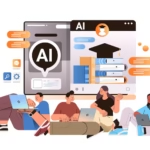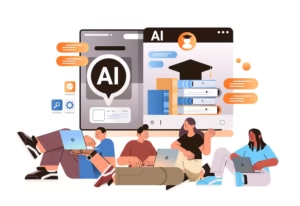
Engineering remains one of the most popular fields of study for students in India, opening doors to various job roles and higher studies. This multidisciplinary field integrates science, mathematics, and technology to design, produce, and innovate machinery, structures, and services.
Table of Contents
Types of Engineering Courses
To embark on this journey, students must complete their 10+2 education with Maths, Physics, and Chemistry as compulsory subjects. Admission to top engineering colleges is typically through entrance exams like JEE Mains & Advanced, COMEDK, and KCET, although some institutions also accept marks from the 12th standard or 2nd year PUC final exams. The duration for undergraduate engineering programs is four years, offered as:
- Bachelor of Technology (B.Tech)
- Bachelor of Engineering (BE)
Top 10 Engineering Streams and Career Paths
1. Computer Science Engineering (CSE)
With the surge in technology-based companies, CSE is a highly sought-after stream. It combines Computer Engineering and Computer Science, focusing on programming, networking, and more. The academic program covers areas such as algorithms, data structures, artificial intelligence, machine learning, databases, and software engineering. Students learn various programming languages and develop problem-solving skills.
Career Options:
- Computer Programmer: Writes and tests code that allows computer programs and applications to function.
- System Database Administrator: Manages and backs up databases, ensuring data availability and security.
- Software Developer: Designs, develops, and maintains software applications or systems.
- Data Warehouse Analyst: Organizes and manages data stored in warehouses, facilitating analysis and reporting.
- Research Analyst: Conducts research and analysis to help businesses make informed decisions.
2. Mechanical Engineering
A traditional field, Mechanical Engineering integrates science and technology to create mechanical tools for industries like manufacturing, agriculture, and automotive. Students learn about materials science, thermodynamics, fluid mechanics, and machine design. They also acquire skills in computer-aided design (CAD) and manufacturing processes.
Career Options:
- Automotive Engineer: Designs and tests vehicle components, improving performance and safety.
- CAD Technician: Uses computer-aided design software to create technical drawings and plans.
- Control and Instrumentation Engineer: Designs, develops, and maintains systems that control and monitor machinery.
- Maintenance Engineer: Ensures that industrial machinery and equipment operate efficiently.
- PSU Jobs: Opportunities in public sector undertakings, working on government projects and infrastructure.
3. Civil Engineering
This stream focuses on designing, planning, and developing infrastructure such as roads, dams, and bridges. Students study subjects like structural engineering, geotechnics, transportation engineering, and environmental engineering.
Career Options:
- Civil Engineering Technicians: Assist civil engineers in designing, planning, and overseeing construction projects.
- Structural Engineers: Design and analyze structures to ensure they can withstand loads and forces.
- Transportation Engineers: Plan, design, and manage transportation systems like highways, airports, and railways.
- Civil Engineers: Oversee construction projects, ensuring they meet specifications and safety standards.
- Water Resource Engineers: Design and manage systems for water supply, drainage, and flood control.
4. Bio-Chemical Engineering
Covering subjects related to chemical processes and biochemical product development, this stream offers roles in oil refineries, water treatment plants, and pharmaceutical companies. Students learn about chemical reactions, process engineering, and biotechnology.
Career Options:
- Chemical Engineer: Designs processes for large-scale manufacturing, ensuring efficiency and safety.
- Environmental Engineer: Develops solutions to environmental problems, such as pollution control and waste management.
5. Electrical Engineering
This field deals with the generation and manufacturing of electrical goods. Students study circuits, power systems, control systems, and electronics.
Career Options:
- Electrical Engineer: Designs and tests electrical systems and components.
- Electrical Sales Engineer: Sells electrical products and services, providing technical support to clients.
- Engineering Associate: Assists engineers in designing and developing electrical projects.
- Professor/Lecturer: Teaches electrical engineering concepts at academic institutions.
- Electrical Design Engineer: Creates detailed electrical plans for buildings and machinery.
6. Aeronautical Engineering
Focusing on the design and maintenance of airborne vehicles, this field offers opportunities in the aviation industry and Indian Air Force. Students learn about aerodynamics, propulsion, avionics, and materials science.
Career Options:
- Aerospace Engineers: Design, develop, and test aircraft and spacecraft.
- Aerospace Designer Checker: Ensures that aerospace designs meet specifications and standards.
- Aircraft Production Manager: Oversees the manufacturing process of aircraft.
- Assistant Technical Officers: Support technical operations in aviation.
- Thermal Design Engineer: Develops thermal systems for aircraft and spacecraft.
7. Electronics & Communications Engineering
This stream involves the design and manufacturing of electronic circuits and communication devices. Students study digital electronics, communication systems, microprocessors, and signal processing.
Career Options:
- Software Engineer: Develops software for electronic devices.
- Network Designer: Designs and implements computer networks.
- Web Developer: Creates and maintains websites.
- CAD Engineer: Designs electronic components and systems using CAD software.
- Communication Manager: Manages communication systems and networks.
Also check out this: Platform for coding
8. Chemical Engineering
This stream focuses on chemical management and extraction, including designing chemical plants and optimizing chemical production. Students learn about process design, thermodynamics, and chemical reaction engineering.
Career Options:
- Production Engineer: Oversees manufacturing processes to ensure efficiency and quality.
- Plant Manager: Manages the operations of a chemical plant.
- Quality Control Executive: Ensures products meet quality standards.
- Plant Designer: Designs facilities and equipment for chemical production.
- Analytical Chemist: Analyzes substances to determine their composition and properties.
9. Agricultural Engineering
This field integrates technology with farming, focusing on designing and improving farm equipment and machinery. Students study soil science, irrigation systems, and agricultural processing.
Career Options:
- Agricultural Engineer: Develops technology to improve farming efficiency.
- Microbiologist: Studies microorganisms that affect agriculture.
- Head Green Keepers: Manages the maintenance of golf courses and sports fields.
- Agricultural Managers: Oversees farm operations and business activities.
- Agronomists: Specialize in crop production and soil management.
Also check out this: Frontend developer interview questions
10. Biotechnology Engineering
Combining biology and technology, this stream works in fields such as medical, pharmaceutical, and biotechnology. Students learn about genetic engineering, bioinformatics, and molecular biology.
Career Options:
- Research Assistants: Conduct experiments and research in laboratories.
- Technical Assistants: Support research and development in biotechnology firms.
- Scientists: Develop new biotechnological products and processes.
Top Engineering Colleges in India
For those aspiring to excel in engineering, here is a list of some of the top engineering colleges in India:
- Indian Institute Of Technology (IIT): Renowned for its rigorous academic programs and research opportunities.
- Birla Institute of Technology & Science (BITS), Pilani: Known for its excellent faculty and infrastructure.
- National Institute of Technology (NIT), Tiruchirappalli: Offers diverse engineering programs and strong industry connections.
- Vellore Institute of Technology (VIT), Vellore: Provides innovative curriculum and global exposure.
- College Of Engineering, Anna University (CEG), Chennai: A leading institution with a strong focus on research.
- Institute Of Chemical Technology (ICT), Mumbai: Specializes in chemical engineering and technology.
- Jadavpur University (JU), Kolkata: Known for its strong engineering programs and research facilities.
- National Institute Of Technology (NIT), Rourkela: Offers excellent academic and extracurricular opportunities.
- Vellore Institute of Technology (VIT University), Vellore: Provides a holistic education with a global perspective.
- Indian Institute Of Engineering Science And Technology (IIEST), Shibpur, Howrah: Focuses on interdisciplinary engineering education and research.
Conclusion
Choosing the right engineering stream and institution can significantly impact your career trajectory. By understanding the various streams and their associated career paths, students can make informed decisions and pave the way for a successful future in engineering.
For more check out this:
- How to Use AI for Effective College Applications: Your Path to Admission Success

- Top AI Study Hacks for Students to Skyrocket Grades and Save Time

- How Artificial Intelligence is Helping Students and the Tech Industry

- Summer Internship Programme 2025
- Front-end Developer Jobs – Kolkata Job Opportunities for All Levels






